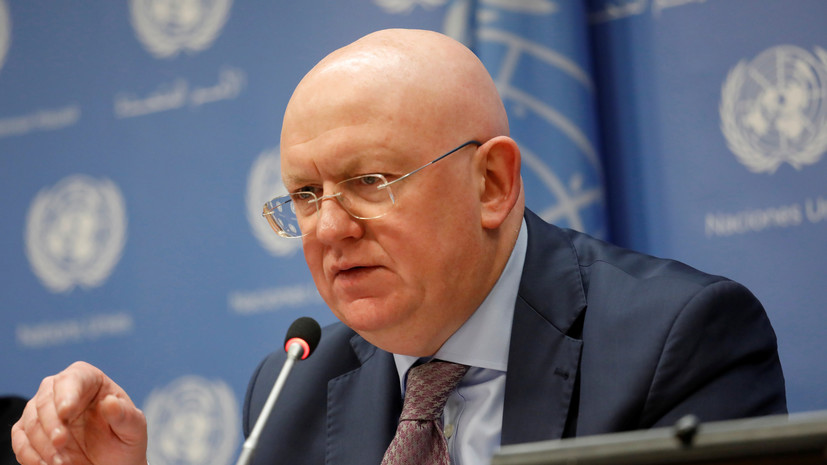According to RIA Novosti, the meeting was devoted to the situation in the Crimea.
Arria meetings are not directly related to Security Council events and involve consultations, which can invite not only diplomats, but also representatives of non-governmental organizations and the public.
According to Nebenzi, in order to understand what happened in the Crimea and why the referendum was held, one should understand what preceded this.
“Unfortunately, Ukrainians have no one to blame but themselves, because they paved the way for this referendum in 2014,” he added.
The Permanent Representative recalled that the guarantors of the agreement concluded by former President of Ukraine Viktor Yanukovych and the opposition were the Foreign Ministers of Germany, France and Poland.
“And these guarantees were violated the very next day by the opposition, which simply seized power in Kiev and forced Yanukovych to flee, because there was a threat to his life,” Nebenzya said.
He noted that "this was the starting point of what happened in the Crimea."
“If this had not happened in Kiev in 2014, the situation would have been different and Crimea today would have been where it was before 2014,” Nebenzya said.
Earlier, Foreign Minister of Ukraine Dmitry Kuleba spoke about the strategic and tactical tasks of Kiev for the "return" of Crimea.
In particular, he called one of the tactical tasks to keep the Crimea theme on the “strategic agenda”.
In February, the press secretary of the Russian leader Dmitry Peskov, commenting on the idea of Ukrainian President Vladimir Zelensky on the celebration of “Day of resistance to the occupation of Crimea and Sevastopol,” said that Russia categorically disagrees with this wording and believes that this in no way corresponds to the actual situation around Crimea.
He noted that the best reaction to this statement can be given by Crimeans themselves, who will tell what became the reason for the decision of Crimea to reunite with Russia, and recall the background of events.
Crimea became the Russian region after a referendum held in March 2014, in which most residents of the peninsula voted to reunite with Russia.

